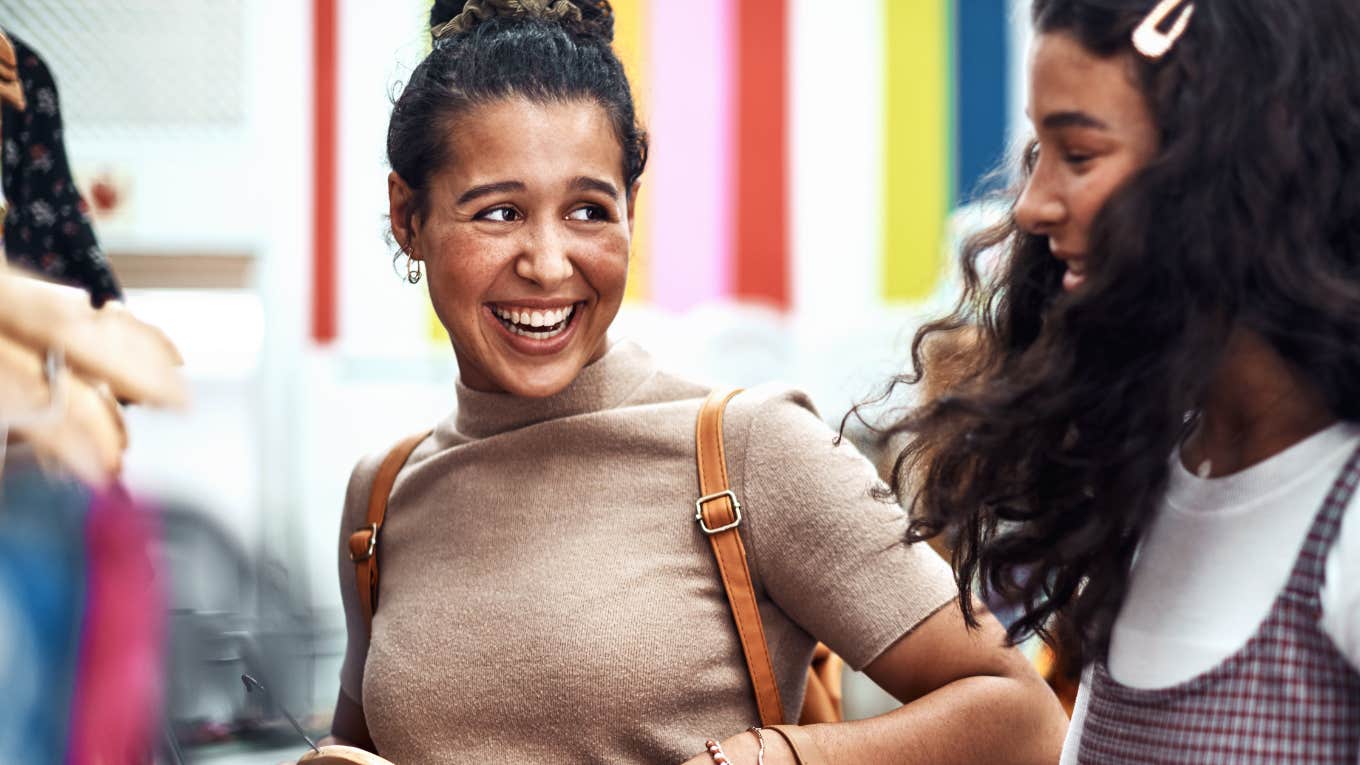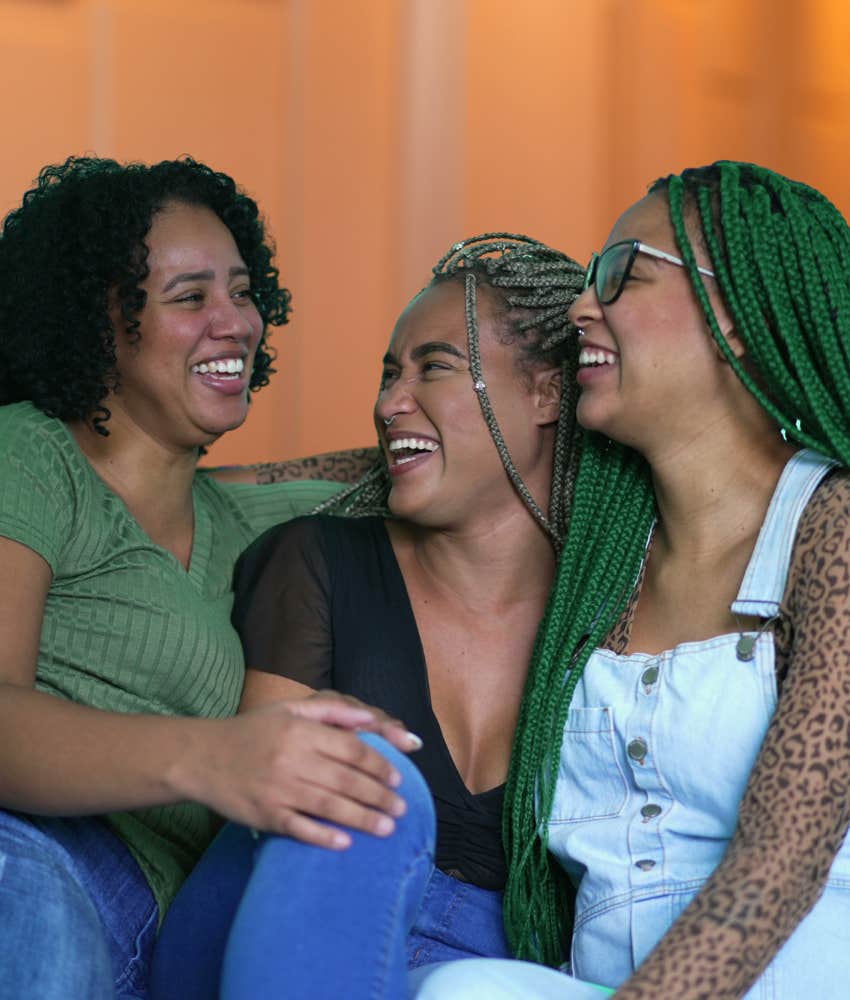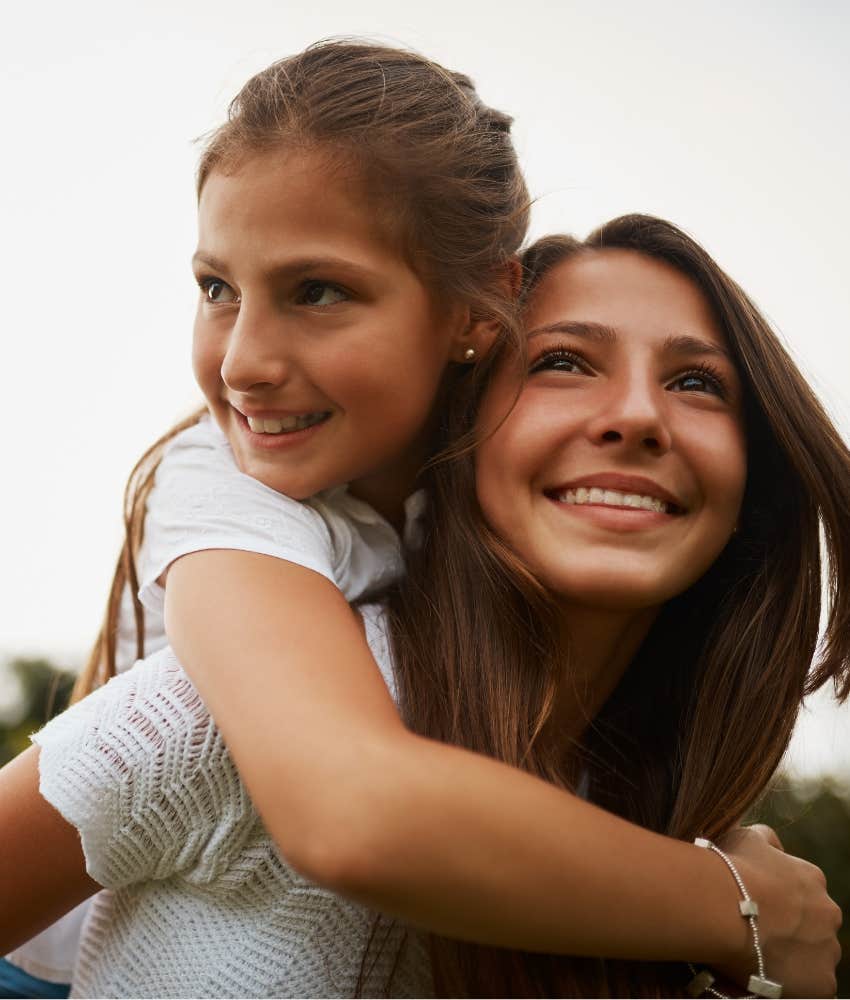If You're Still Best Friends With Your Siblings, Your Parents Probably Did These 5 Things Right
Sibling misery isn't inevitable, and parents have more control than they realize.
 PeopleImages by Yuri A via Shutterstock
PeopleImages by Yuri A via Shutterstock Too often, I hear from parents, "Kids just fight; that's what brothers and sisters do!" like it is a rite of passage. And while I agree that kids will go through stages of fighting with and love for one another; I also know it doesn't have to be such a negative experience. Siblings can be best friends if their parents do a few things differently.
If you're best friends with your siblings, your parents probably did these five things:
1. They encouraged you to see one another as friends, not rivals
It's cute and endearing the first time your child comes home and declares that Little Billy is their new best friend. But starting at an early age, parents may want to refer to the siblings as each other's best friends and refer to their other friends as their best friends outside of the family or close friends.
Saving the term "best friends" as a sacred title to be shared among siblings and cousins helps kids learn to prioritize their sibling relationships.
2. They encouraged you to share friends
 Bricolage via Shutterstock
Bricolage via Shutterstock
Parents who let their children exclude their siblings teach them that it is OK to play with their brother or sister most of the time but leave them out when their friend comes along. This teaches kids an unfortunate lesson about how to treat people they care about.
Of course, siblings can have some alone time with the friend, as long as it is communicated clearly and kindly and balanced with time all together. Which brings me to the next point...
3. They gave you space from one another
Siblings often argue and fight because they spend so much time together. Parents who teach kids that everyone needs quiet or alone time in the day, even when everyone is getting along, allow their kids to speak up for themselves and to value their own needs and boundaries. This also helps kids learn to respect other people's boundaries and to not take other people's need for space as an insult or rejection.
4. They enforced respect and kindness and didn't tolerate insults
 PeopleImages.com by Yuri A via Shutterstock
PeopleImages.com by Yuri A via Shutterstock
Parents whose kids grow up to be best friends will exert the energy to tell them to "stop and be nice" and enforce it. They must experience their sibling as a human being and be treated with love and respect, as they are with others, namely friends.
It's no surprise that this helps kids bond and learn to trust one another, but it also teaches them how relationships should feel — safe and not emotionally turbulent.
5. They recognized the roles each sibling plays according to birth order
Whether you had two, three, or more children in your home growing up, parents who appreciate and valued where each child is in their birth order are less likely to let siblings fall into stereotypical roles and traps. That requires understanding the common characteristics that come along with that place and helping kids understand them, too.
For instance, the oldest tends to be the more responsible one with the highest expectations placed upon them. Instead of resisting that, parents who want their kids to grow up to be friends value it.
The middle child may be the peacekeeper, and the youngest may be the baby, constantly trying to keep up with the other two. If everyone can understand and appreciate what they may have been born wired to add to the family, everyone's roles will be better valued and utilized.
Dr. Sheryl Ziegler is a mother, Doctor of Psychology, speaker, and author of Mommy Burnout: How Addressing Yours Will Make You A Better Mother And Create A Better Life For Your Children.

